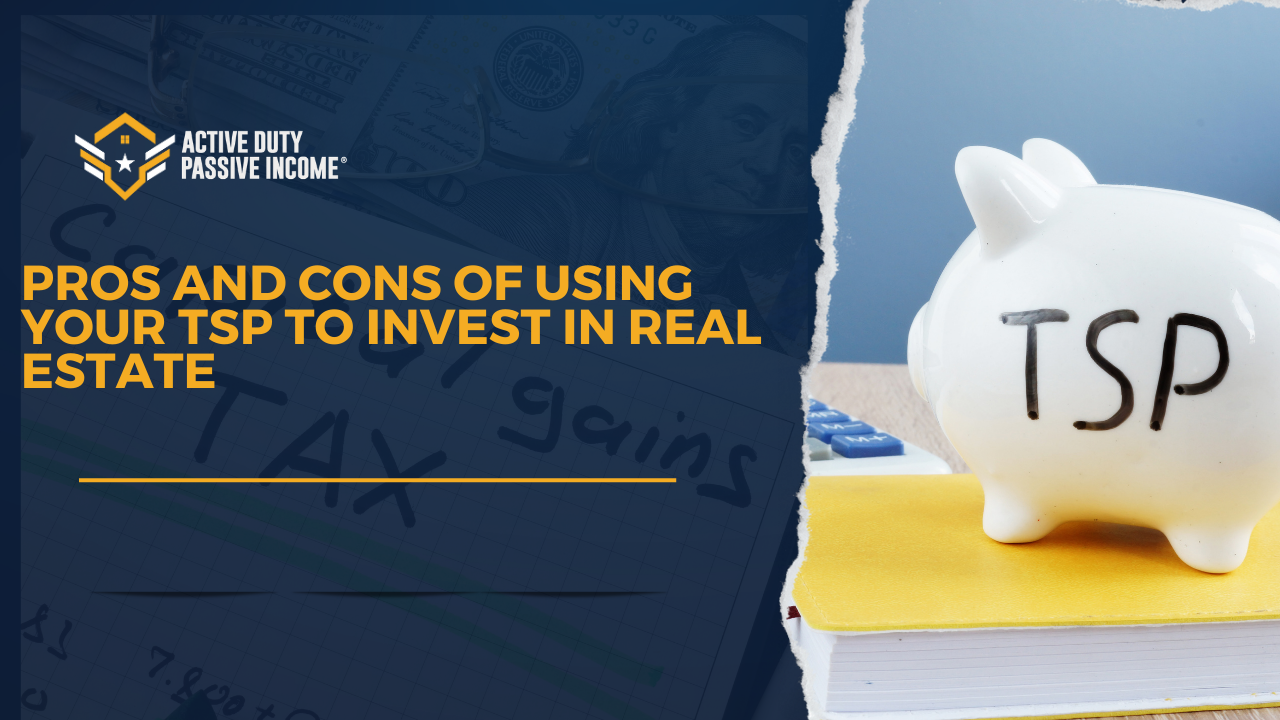The decision to channel your Thrift Savings Plan (TSP) into real estate investment necessitates a comprehensive analysis of both advantages and drawbacks. This exploration aims to provide a dispassionate examination of the potential outcomes, allowing for a measured decision-making process in alignment with long-term financial goals.
I. Advantages of Real Estate Investment
Real estate investment utilizing your TSP introduces several potential advantages, each carrying distinct implications for your financial portfolio.
Diversification and Wealth Building
Real estate stands as a robust avenue for diversification, affording the ability to distribute risk across various asset classes. Its historical track record as a wealth-building tool emphasizes the potential for both property appreciation and passive income.
Potential for Higher Returns
Compared to conventional investment options like stocks and bonds, real estate investments present the prospect of higher returns. Strategic property selection and market timing can significantly amplify overall investment returns.
Control Over Investments
Direct control over assets represents a significant departure from traditional TSP investments. The ability to actively manage properties allows for strategic decision-making and potential enhancement of investment performance.
Tax Advantages
Real estate offers unique tax benefits, including deductions for mortgage interest, property taxes, and potential depreciation. These advantages contribute to potential long-term tax savings.
Leverage Opportunities
Strategically leveraging TSP funds to secure mortgages for real estate purchases provides an avenue to magnify purchasing power. This approach can facilitate the creation of a more extensive and diversified real estate portfolio.
II. Challenges and Risks of Real Estate Investment
While the allure of potential benefits is evident, an understanding of the challenges and risks associated with using TSP for real estate investment is imperative.
Liquidity Concerns
Real estate’s inherent lack of liquidity stands in stark contrast to traditional investment options. Converting real estate assets into cash may prove time-consuming, posing challenges during financial emergencies.
Market Volatility and Economic Factors
Real estate markets are subject to fluctuations influenced by economic conditions, interest rates, and local factors. Economic downturns can impact property values, potentially affecting investment returns.
Operational Responsibilities
Real estate demands active management, involving property maintenance, tenant relations, and other operational responsibilities. The substantial time and effort required may present challenges for individuals with busy schedules.
Risks of Property Management
Engaging in property management carries risks, including tenant turnover, property damage, and unexpected expenses. Inexperienced property management may lead to financial and operational challenges.
Potential for Losses
Real estate investments are not immune to losses, with property values susceptible to decline. Economic downturns or adverse market conditions can contribute to unforeseen challenges.
III. Personal Considerations and Decision-Making
Standing at the intersection of TSP and real estate investment requires a personalized evaluation. Individual financial situations, risk tolerance, and long-term goals play a pivotal role in determining the appropriateness of this strategy. Seeking guidance from financial professionals and trusted advisors is recommended for navigating this intricate decision-making process.
The intersection of TSP and real estate investment necessitates an analytical, pragmatic approach. By methodically weighing advantages and drawbacks, individuals can make informed decisions aligned with their unique financial aspirations. Real estate investment using TSP is not a one-size-fits-all proposition but an intricate journey requiring careful consideration. As individuals navigate this financial terrain, a balanced understanding of both sides empowers decisions that shape a future in harmony with their financial objectives.








